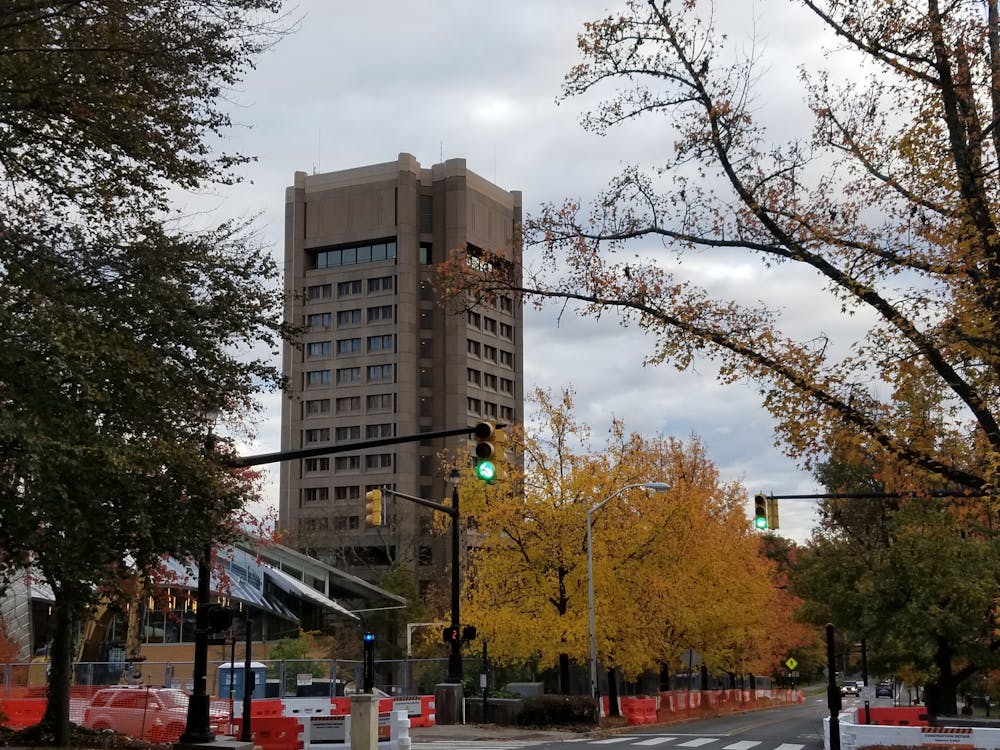Last July, I decided I wanted to take math in college. My heart was set on it. Did I have any desire to major in math? Absolutely not. Did I need a math class to fulfill a requirement? Nope, I wanted to be a history major. But I enjoyed math in high school, and I wanted to continue to explore the field. I had previously taken classes up to linear algebra, so I selected MAT 202 from the Math Department website.
I took math because I desired to learn. One would think a student like me would thrive in this class, especially at a university that prides itself on enabling students “to pursue multiple interests rigorously and deeply,” as President Eisgruber says on the University website. Unfortunately, it is difficult for students pursuing humanities and social science degrees to explore classes within STEM departments due to the inaccessibility of introductory courses.
Though I passed MAT 202 class just fine, my experience in it was miserable. The way the course was run did not at all set up students to succeed — or even learn math. For example, though we were provided with practice problems to prepare for our exams, we were never given solutions. My class consistently begged my professor for these, yet all he could say was that not providing them was departmental policy, and it was out of his control.
This begs the question: what interest does a department have in making it impossible to study? Study materials are given so that students can learn the course material and prepare adequately for the exam. Solution sets are part of this: to properly learn, one needs to be able to identify their mistakes and understand why they are wrong. By not supporting students who are making an effort to study, it becomes both extremely difficult to learn material, and demoralizing to even try. This struggle was reflected in our exam averages, which were, respectively, in the 50s, the 60s, and the 30s.
I am far from the only person who felt this way about my class. MAT 202 has an abysmal rating of 2.71 on princetoncourses.com during the spring 2020-2021 semester. The evaluations on the Office of the Registrar’s website are no better. Students described the course as “disheartening” and said they “lost a lot of respect for the Math department after taking this course.” The advice that came up again and again in many reviews was: “Don’t take this class unless you have to.”
MAT 202 is not a course that math majors typically take, but rather for underclassmen who are majoring in engineering or sciences. Because of this, the priority of the class should be teaching students as much as possible about math so that they will remember and utilize the discipline in classes and majors that are not focused on that realm — something that would be equally interesting, if not as useful, for humanities majors. Is this not what introductory classes are all about? Princeton promises students a “liberal arts education,” and defines that as an education offering “expansive intellectual grounding in all kinds of humanistic inquiry.”
Yet as a humanities student, it feels extremely difficult to explore STEM fields. I wanted to learn some introductory physics in college because I had an awful experience with it in high school, but I’ve been dissuaded my experience in math — not to mention that the most recent average rating of the four introductory physics courses (PHY 101, 102, 103, 104) is a 3.2, and the comments repeatedly have told me to only take this class if I have to.
We are often told of engineering or STEM students exploring the humanities to their heart's content, but I feel that we rarely hear of students in the humanities being encouraged to take scientific or quantitative classes. The University website assures readers that “Students who elect to major in the natural sciences or engineering, for example, also take classes in history, languages, philosophy, [and] the arts,” but I don’t see any inspiration for those of us who really want to learn math, or physics, or chemistry, but just don’t want to focus on it for 4 years.

On face value, 100 and 200 level classes appear approachable for students who simply want an introduction to a field. I wanted to learn linear algebra! I had the correct prerequisite knowledge to do it. So why didn’t the math department encourage me in this pursuit?
I understand that professors and departments have an obligation to teach a certain amount of material and maintain a certain pace, but there are ways to teach that focus more on developing an understanding of a field rather than beating down students’ self-confidence and making problems so hard that learning at all is difficult. I would think that departments want students to fall in love with their subjects. But though I entered the semester with a love for math, I left with the certainty that I would never take a math class again, and a lack of desire to explore other scientific fields for fear that I would have a similar experience.
Abigail Rabieh is a first-year columnist from Cambridge, Mass. She can be reached at ar5732@princeton.edu.









